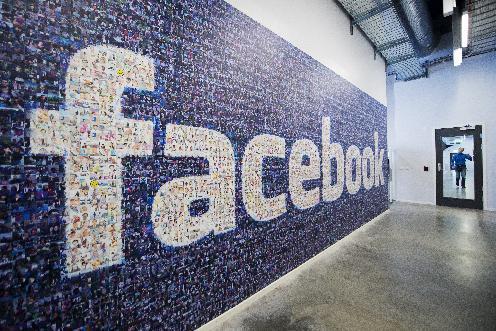the nazi's wet dream ...u fill IN yer OWN "controller files" who'd fucking thunk it ! Oops don't fer~geet 2 fill in yer "file" today boys & girls Lol
 (AFP)
(AFP)
This week, Facebook announced the latest version of its advertising initiative, a network it has lovingly dubbed “Atlas.” Facebook has pitched it, on its own website, as a tool that “delivers people-based marketing” for clients.
That might automatically sound suspicious coming from a company known for its occasional disregard for individuals’ privacy.
So what does this fancy new money-making tool mean for us Facebookers? Below is a guide to everything you should know.
Wait, how is this different from the way Facebook has already been stalking me?Let’s
review how Facebook’s advertising platform functioned before Atlas. In
short, it collects data on its 1.3 billion users to sell targeted ads
that appear on its website. It does this by combining what
it knows about you as a Facebook surfer and what it learns from your
activities outside of Facebook via cookies it installs in your browser
that follow you around as you surf the Web.
You know the old
story: You look up a pair of amazing shoes you want to buy that are
clearly out of your price range. Then the shoes follow you around on
your favorite social networks for the rest of the week, taunting you to
purchase them.
Companies like
Google do this, too, but because Facebook has an absurd amount of
personal intel on you, this tactic has helped it become the
second-biggest ad-slinger in the world.
How is Atlas different?Cookies
don’t work as well on mobile apps, which presents a problem for
advertisers, who are hungry to penetrate that increasingly popular
digital space. Cookies also don’t tell advertisers what percentage of
people bought something after seeing it in an online or mobile
advertisement.
Atlas does both of those things.
Does that mean Atlas is hitting up brands and saying, “Yo, Alyssa bought your stuff after seeing your ad”?Not
exactly. Facebook itself knows who you are and whether you’ve clicked
through an ad on its site to buy something. But when it offers this
information to its clients, it doesn’t single out individuals and say,
“Alyssa Bereznak bought a new thing from Anthropologie;here’s her full
name, relationship history, and area of residence.”
Rather, Anthropologie will hand
Facebook a list of people who bought some of its gorgeous yet
prohibitively expensive rugs. Facebook then compares that list with the
number of people who saw Anthropologie ads and tells the company the
percentage of targeted users who actually bought those rugs.
This helps Anthropologie know
how successful its investment on the platform was. It doesn’t know that
you, specifically, dropped lots of bills on a rug — just how many did,
versus how many saw the ad.
Oh, so it’s not much different from other targeted ads online?Yeah,
except Facebook knows you much better. So even if Google can see from
your search history that you’re interested in new furniture, Facebook is
probably much more in tune with what’s going on with you, based on the
content of your posts (“Got a new apartment! Need to cover up some gross
spots on the floor but I love it!” and other fun stuff like that).
Is there a way to opt out of Atlas?There is! You can stop Facebook from following you around the Web by following the instructions here.
Should I be afraid or upset?This
depends on whether you’re one of those fatalistic people who has
willingly surrendered a large part of her privacy in order to function
in the modern digital world. I, for example, am mostly “meh” about the
whole thing.
That being said, lots of smart,
brand-fearing people are vigilant in their fight against advertising
tactics like these. I salute you for it and wish you luck building an
oasis of the Internet that’s not crawling with tracking tools. But,
remember, even companies that loudly pledge to protect your data will eventually find ways to please advertisers.
Where can I find out more?Facebook has set up a special website to inform members about Atlas. You can visit and “take a tour” of the Atlas system there.



No comments:
Post a Comment